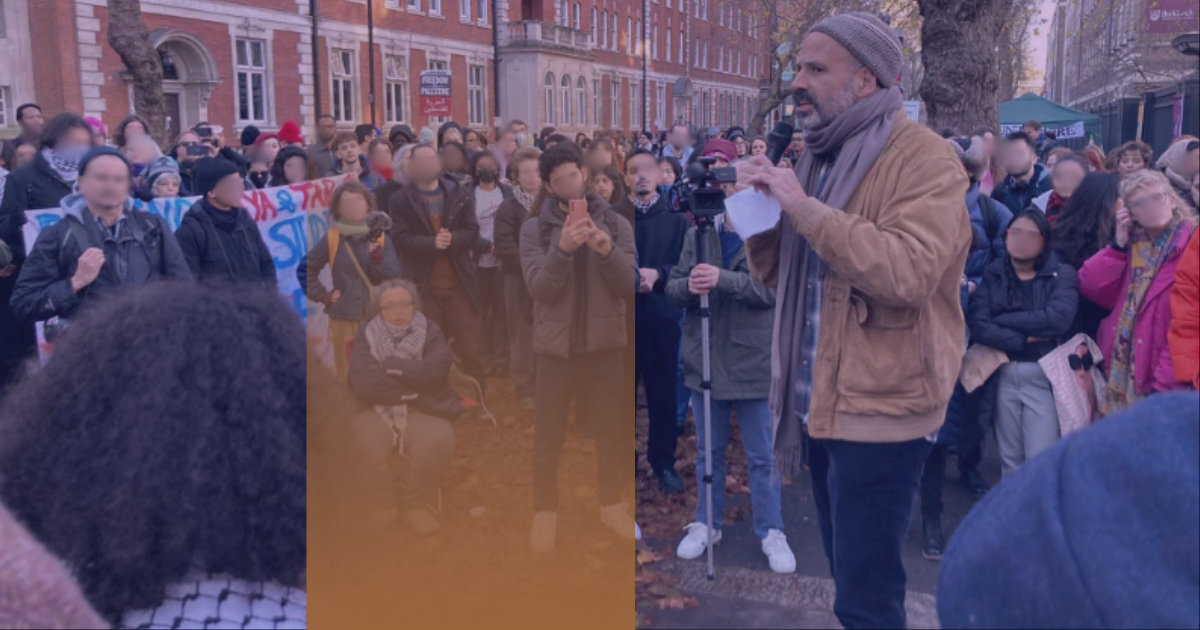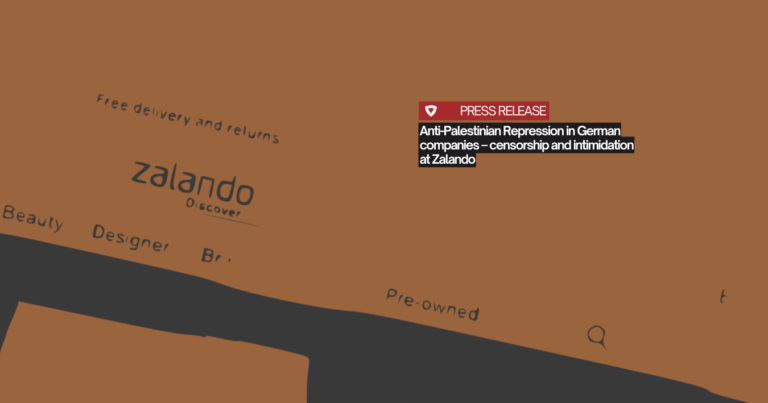UK Taxpayer-Funded British Research Council Seeks to Force Palestinian Scholar into Israel’s Apartheid Courts
UK Employment Tribunal to Hear Landmark Jurisdiction Case: Haddad v. Council for British Research in the Levant
Dr Toufic Haddad, a Palestinian American academic and former Director of the Council for British Research in the Levant’s (CBRL) Kenyon Institute in occupied Jerusalem, was dismissed in 2023 under unfair circumstances that are rooted in political discrimination tied to his scholarship and public positions on Palestine.
Despite being a UK-registered organisation, publicly funded through the British Academy, and governed from London, CBRL is attempting to block Dr Haddad’s unfair dismissal claim by insisting the case be heard in Israeli courts. This is despite the UK government’s recognition of the Sheikh Jarrah neighbourhood of occupied Jerusalem as illegally occupied territory under international law.
Dr Haddad’s legal team will argue that CBRL’s stance violates fundamental principles of justice, academic freedom, and political belief protections under the UK Equality Act 2010, including anti-Zionist beliefs. CBRL’s governance, funding, and oversight are UK-based; the research is taxpayer-funded and embedded within UK academic frameworks. Forcing a Palestinian scholar into the Israeli legal system, especially when CBRL refuses to register with Israeli authorities (to protect its lease from Israeli settlers and avoid legitimising annexation) undermines international law and denies meaningful legal redress.
The European Legal Support Center (ELSC) has instructed barrister Franck Magennis of Garden Court Chambers to represent Dr Haddad. The case is fully supported by his trade union, UCU, and challenges CBRL on grounds of:
- Unfair Dismissal (Employment Rights Act 1996)
- Discrimination based on political belief, specifically anti-Zionism (Equality Act 2010)
- Attempting to deny UK court jurisdiction in favour of Israeli apartheid courts
Background:
Occupied Jerusalem has been under Israeli military control since 1967 and was formally annexed in 1980; a move widely condemned and deemed unlawful under international law. Palestinians living in areas such as Sheikh Jarrah – where the Council for British Research in the Levant’s (CBRL) Kenyon Institute is located – are issued precarious “permanent residency” IDs by the Israeli state; one of many settler-colonial policies designed to fragment, control, and displace Palestinians. Palestinian Jerusalemite IDs can be revoked at any time, often for political reasons or prolonged absences, reinforcing a constant threat of displacement to realise Israel’s ”Greater Jerusalem Plan” and enhance ethnic cleansing. This regime is part of a broader Israeli system of control and dispossession, which assigns different types of IDs and imposes separate legal systems on Palestinians depending on their location—in Gaza, the West Bank, 1948 territories, and occupied Jerusalem.
Dr Toufic Haddad said:
“CBRL had a professional, moral, and historical duty amidst the ongoing Israeli genocide and scholasticide in Gaza. Instead, they tried to silence me and then dismissed me. My case exposes rotten instincts within British academia, raising questions about their commitment to academic freedom, labour rights, and human decency.”
Tasnima, European Legal Support Center (ELSC), said:
“This case reveals the deep colonial complicity of British institutions operating in Palestine today. CBRL is not only silencing a Palestinian academic but also asking UK courts to hand him over to Israel’s apartheid legal system — legitimising illegal annexation and racial domination condemned by the International Court of Justice. This is a direct violation of the UK’s duty not to recognise or assist unlawful regimes.”
Franck Magennis, Garden Court Barrister, said:
“The British-backed Zionist project has always been about stealing Palestinian land and ethnically cleansing its people. ‘Israel’ illegally annexed East Jerusalem after 1967, and CBRL by their actions in this case are endorsing that illegality. Moreover, a Palestinian academic must not be expected to endure racial domination in Israel’s apartheid courts: the British Employment Tribunal is the proper place for this important case challenging British academic complicity in the fascist ideology of Zionism.”







